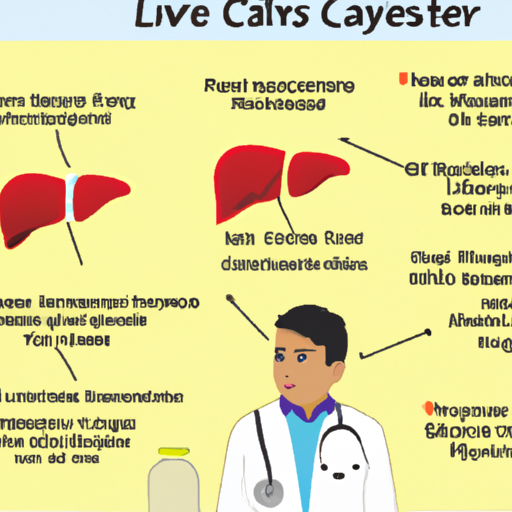Uncategorized
Causes, Symptoms, and Treatment of Liver Cysts
Join a Clinical Trial for Liver Disease with ChatGPT-Pharmacy.com
Are you interested in participating in a clinical trial for liver disease? ChatGPT-Pharmacy.com makes it easy for you to access the latest treatments not yet widely available and be a part of finding a cure.
What is a Liver Cyst?
A liver cyst is a closed, sac-like pocket of tissue formed in the liver that may be filled with fluid, air, pus, parasites, or other materials. Liver cysts can either be single or multiple and can be caused by various etiologies.
How Common are Liver Cysts?
Liver cysts are very common, affecting between 15-18% of people in the US. However, most people do not have symptoms.
Liver Cyst Symptoms
Most of the time, liver cysts do not have symptoms. However, large cysts can cause pain or upper abdominal discomfort as well as complications such as hemorrhage, rupture, infection, or compression of the biliary tree. Symptoms vary based on the type or cause of the cyst.
Simple Cysts
Simple cysts do not usually cause symptoms, but in a minority of people, they can cause pain, nausea, and vomiting.
Echinococcal Cysts
Echinococcus can cause hydatid cysts in the liver, among other organs. Patients are usually asymptomatic, but these cysts can rupture and cause serious complications.
Liver Metastases
Liver metastases may appear as cysts due to central necrosis, typically from metastasis of pancreatic, colon, kidney, or ovarian tumors.
Polycystic Liver Disease
Polycystic liver disease affects the whole organ with multiple cysts. Symptoms/complications include pain, hepatic function impairment, and cyst infection.
What Causes Liver Cysts?
In most cases, there is no known cause for liver cysts. Different forms of liver cysts have different causes. Simple cysts form from biliary ducts that do not connect to the biliary system. Hydatid cysts are caused by the tapeworm Echinococcus granulosus. Liver metastasis can sometimes be cystic or cystic-looking due to central necrosis. Polycystic liver disease is a genetic condition associated with a gene mutation.
How is a Liver Cyst Diagnosed?
Liver cysts are usually diagnosed by an abdominal CT scan of the liver, sometimes using a special contrast agent to help show the different features the doctor is looking for. Blood tests are used to differentiate the causes of liver cysts, particularly parasitic causes.
Complications of Liver Cysts
Complications of liver cysts can include infection, rupture, hemorrhage, or compression of the biliary tree.
Liver Cyst Treatment
Usually, liver cysts do not need to be treated. Complicated or large cysts may need to be surgically removed or drained. Treatments available include drainage, surgery, and antibiotics for parasitic cysts.
When to Seek Medical Help?
If you have experienced any symptoms that may indicate a liver cyst, it is best to see a doctor. If you have been diagnosed with a liver cyst or polycystic liver disease, see your doctor if you experience any signs of complications.
The Lowdown
Liver cysts are common and, in most cases, do not cause any issues or require treatment. Symptoms vary based on the type or cause of the cyst. If you are concerned about potential symptoms of a liver cyst, it is best to see a doctor.

 Skip to content
Skip to content


